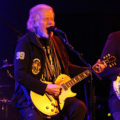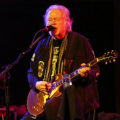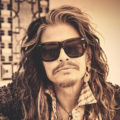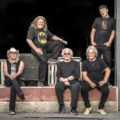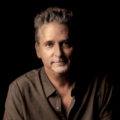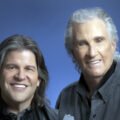“You Ain’t Seen Nothing Yet”: Bachman-Turner Overdrive, Genesee “Takin’ Care Of Business”
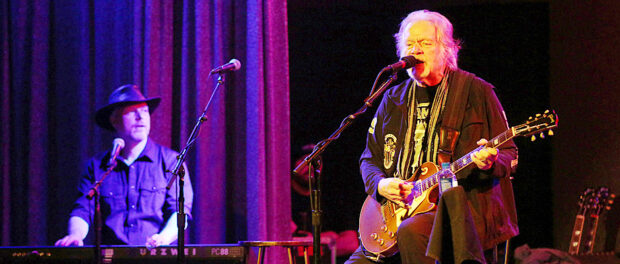 Photos by Andy Argyrakis
Photos by Andy Argyrakis
Hardly a moment goes by when one of Canada’s most colossal classic rock exports, Bachman-Turner Overdrive, isn’t blasting out of a car stereo, movie, TV show or commercial somewhere on earth, and now following a long-awaited re-formation, on the concert stage as well.
Thanks to original vocalist/guitarist Randy Bachman, plus the full blessing of singer/bassist Fred Turner and fellow guitarist Blair Thorton on the heels of guitarist/drummer brothers Tim and Robbie Bachman passing away, BTO is indeed “Back In Overdrive” and about to “Roll On Down The Highway” towards the Genesee Theatre on Friday, October 20.
With that in mind, Chicago Concert Reviews reached Randy to hear about originally getting into “Four Wheel Drive” after an unstoppable streak in The Guess Who, through how the band is currently “Takin’ Care Of Business,” and if this revealing conversation is any indication, “You Ain’t Seen Nothing Yet.”
How would you describe what’s planned for the Genesee Theatre?
Randy Bachman: It’s a great mix and it’s a wonderful return to all the success of BTO, not just the hits, but the album cuts. Our fans are very active in requesting songs [online]. “If we’re gonna drive 200 miles or 400 miles, we want to hear ‘Shotgun Rider.’ We want to hear ‘Welcome Home.’ We want to hear ‘Stayed Awake All Night.’” We haven’t heard these songs since we played the albums, so our set list is quite varied, and even in the middle of the night, people come, put a piece of paper on stage and ask for a song. I just look at the band, we nod and we charge into the song. And we have videos behind us for all the gigs, so people get a visual… If a song’s from ’69, it will show us in ’69, or our hairdos, or the guitars, or the cars and stuff, so it’s quite an interactive show and the crew is incredible. They set up the BTO gear, and the lights, and everything just like the ’70s when were rocking in the free world. It’s really great…
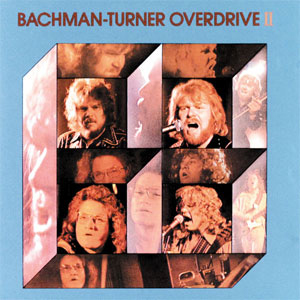 It’s evolving from doing gigs with Burton Cummings, Bachman Cummings, my own gigs and my storytelling thing. Then suddenly, “we want BTO, BTO, BTO.” “Oh okay, yeah, I can do that. Yeah, I wrote that. Yeah I produced that. Yeah we can do that” and so we switched over. It’s been great to go out and play 20 hit songs. I even throw in some Guess Who songs, so people are getting extra money’s worth because we’re playing “American Woman” cause I wrote it. We’re playing “No Time” cause I wrote it and we do it with the band. We played Springfield, Massachusetts, and in the middle of the set, a piece of paper comes on stage and says, “Would you please play ‘These Eyes?’ It was our song when we graduated and it was our wedding song. We play it every year at our anniversary, and we’re here celebrating our anniversary, and we’ve driven 315 miles to hear the song…” We do “These Eyes” and it’s really great, sounds like the record, and then in the middle of the song, 10 or 12 couples stand up, husband and wife, and they start waltzing. This was their song of their wedding, or their prom, or their family reunion, or whatever and we got a standing ovation, so it’s very fun for me having written the song. I’s kind of like that. We’re just doing whatever comes out of the fans or us. We’re on a roll.
It’s evolving from doing gigs with Burton Cummings, Bachman Cummings, my own gigs and my storytelling thing. Then suddenly, “we want BTO, BTO, BTO.” “Oh okay, yeah, I can do that. Yeah, I wrote that. Yeah I produced that. Yeah we can do that” and so we switched over. It’s been great to go out and play 20 hit songs. I even throw in some Guess Who songs, so people are getting extra money’s worth because we’re playing “American Woman” cause I wrote it. We’re playing “No Time” cause I wrote it and we do it with the band. We played Springfield, Massachusetts, and in the middle of the set, a piece of paper comes on stage and says, “Would you please play ‘These Eyes?’ It was our song when we graduated and it was our wedding song. We play it every year at our anniversary, and we’re here celebrating our anniversary, and we’ve driven 315 miles to hear the song…” We do “These Eyes” and it’s really great, sounds like the record, and then in the middle of the song, 10 or 12 couples stand up, husband and wife, and they start waltzing. This was their song of their wedding, or their prom, or their family reunion, or whatever and we got a standing ovation, so it’s very fun for me having written the song. I’s kind of like that. We’re just doing whatever comes out of the fans or us. We’re on a roll.
What are your thoughts and memories relating to Chicago?
Bachman: Growing up in Winnipeg, we’d always get Chicago radio late at night. We got two stations, WLS, and I forget the other one. We’d listen to Dick Biondi all night long and hear really great music cause Chicago had great music compared to Winnipeg, which is kind of a country/western kind of town. Then as we grew up in The Guess Who, we would always go to Chicago and play gigs there. RCA Studios in Chicago was built just for The Guess Who cause [the] drive from Winnipeg to New York was too far, so they said, “You go half way. We’ll build a studio in Chicago.” That’s where we recorded “American Woman,” so we have great memories of Chicago. Now I go back to Chicago and play all the time. I’ve played the Taste Of Chicago many times, I think, when [Bill] Clinton was president. He was playing sax in one of the bands there and he wanted to play “Takin’ Care Of Business,” but his security guards wouldn’t let him come on stage. I have great memories of Chicago. Chicago is a great rock and roll and blues town. We can’t wait to come back. We’ve got great fans there.
The amount of hits you have written for both bands is just staggering. How have you managed to write so many anthems?
Bachman: Well, there’s a way to write ten hit songs. You write a hundred songs (laughs). That’s the truth. Every song I write in my mind is a hit…You put 10 or 12 of them together and you put out an album. If you’re lucky, some radio guy somewhere goes, “Oh, I like this song.” He plays it, people then phone it into the station, and then you go and buy it, and you have what’s called a ‘hit record,’ which is a song that everybody likes and loves.
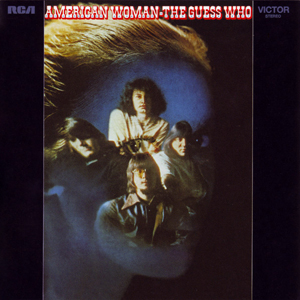 You have no idea what song it’s gonna be. You just do your album. You put out your songs. And I say it for many guys, “You can’t choose your audience.” I can’t write a song that [says], “this song is gonna be for only truckers,” or “this song is only for bikers,” or “this song is for housewives who are in their twenties, who just got married and have a kid.” You can’t pick your audience. Your audience picks you, and once they pick you, be very glad that they picked you. Give them what they want. Give them a little bit extra, like you’re trying to teach your kid to like broccoli along with their mashed potatoes (laughs). Give them a little bit extra stuff once in a while and they’ll come along with you, and you’ll have a great life, and write really good songs. They remember you because they remember your songs.
You have no idea what song it’s gonna be. You just do your album. You put out your songs. And I say it for many guys, “You can’t choose your audience.” I can’t write a song that [says], “this song is gonna be for only truckers,” or “this song is only for bikers,” or “this song is for housewives who are in their twenties, who just got married and have a kid.” You can’t pick your audience. Your audience picks you, and once they pick you, be very glad that they picked you. Give them what they want. Give them a little bit extra, like you’re trying to teach your kid to like broccoli along with their mashed potatoes (laughs). Give them a little bit extra stuff once in a while and they’ll come along with you, and you’ll have a great life, and write really good songs. They remember you because they remember your songs.
If you had to boil it down to any pivotal or defining moments, what would they be?
Bachman: Things that happened by happenstance or by mistake. Walking on stage in the middle of a three-hour set in a freezing curling arena, which is an ice rink in Canada in February, breaking a string on my guitar, putting on a new string, and starting to play a riff, and when Burton Cummings ran on stage, started to sing, “‘American Woman,’ stay away from me.” We wrote that song on stage that night. It went to number one the next year, number one album and single in the world. It was life-changing. There’s a couple moments like that that happen that you have no idea they’re gonna happen. They’re just happening and you’re kind of stunned on stage making up a song and the audience is feeling this energy coming from the song being created. Like if you go to a jazz concert and somebody’s really improvising, and you close your eyes, and their music moves and touches you, or in the symphony, things like that. Classical music is really emotional and it really grabs you. It’s one of these things that happens with music. It’s a universal language and it touches everybody the same way.
What did coming off the enormous success of The Guess Who bring to the table when you were starting BTO?
Bachman: It was terrible. I mean to be with a band for eight or nine years, struggling and struggling, and struggling, and suddenly, to have a string of hit records in two years, like “Laughing,” “Undone,” “American Woman,” “These Eyes,” “No Time,” bam, bam, bam, and hitting number one, album and single, and having a medical issue, a gall bladder problem that I had to leave the band and wait in line for an operation in a hospital, and the band go ahead without me, it was devastating. So to start over from scratch again, trying to find guys in a band, in Winnipeg, I couldn’t find anyone. I had my younger brothers who I taught to play. I was the oldest guy. They all played a little guitar and drums. So I got my brother a little drum set and he started to play drums in BTO. I had to do what you had to do. And again, in less time in three years, rose from the ashes, the phoenix of The Guess Who, the crash and burn thing there, to mid-’74, number one album, “Not Fragile,” and number one single,” “You Ain’t Seen Nothing Yet,” boom! In half the time it took with The Guess Who, I did it with BTO and then rode that crest for years all around the world, and sold another 20, 30 million albums.
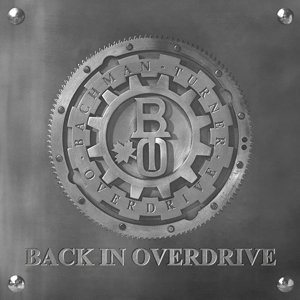 At least it ended well and sounds like it all resolved itself?
At least it ended well and sounds like it all resolved itself?
Bachman: What’s amazing is as time goes by, all those stupid things you did, or they did, or you did together, they all fade and what really lasts is, “Man, we rocked the world. We wrote some great songs. Let’s get back together and do it again.” I was fortunate enough in the early 2000s to get together with The Guess Who: Burton Cummings, Jim Kale, Garry Peterson, Bill Wallace, and do a couple of Guess Who tours right across Canada and in the Northern United States. I think we played Chicago quite a bit, and then of course, the phone starts ringing, “Well, will you do BTO?” “Of course!” For me to be able to go out with my band, and my son Tal, and with Fred Turner, it’s great to do it again. It’s fantastic.
Who is in the line-up these days?
Bachman: Fred is in Winnipeg and we’re getting him interested. We’re doing a couple of dates and we’re saying, “Wow Fred, these dates are great. Can you come out?” “Well, I’ll think about it. I’ve gotta take care of this. I’ve gotta take care of that…” Tal’s with me [on guitar, piano and vocals], and then Mick [Dalla-Vee on bass and vocals], Marc [Lafrance on drums and vocals] and Brent [Knudsen on guitar].
What are the chances of recording new BTO music and what might that sound like now?
Bachman: It’s gonna sound like 1976, ’77. We’re working on it now. Fred Turner’s sending me some songs. I’m sending him songs. I was given the gift of being able to mix, for the first time, BTO live at Budokan 1976. We played a world tour for 95 days. We toured the States with Bob Seger, in England with Thin Lizzy and in Germany with Scorpions. Then we went to Japan for six dates and recorded “Live At The Budokan” and we were playing at the peak of our musical existence, incredible. I’ve got 18 songs I’m gonna mix from two concerts there, Budokan and Tokyo, and they’re going to be coming out next year as a big double set and we’re working on a new BTO album that’s gonna sound like you heard the new [Rolling] Stones songs. It sounds like the Stones in the ‘70s. The ‘70s are coming back and so is BTO. We’ve got the songs. Turner’s screaming his head off. I’m screaming my head off. We’ve got heavy guitar, heavy drums. Tal’s in the band now with an extra guy replacing Blair Thornton. We’ve got it all…
What do you want listeners who are in the process of getting reacquainted with BTO to know about the band?
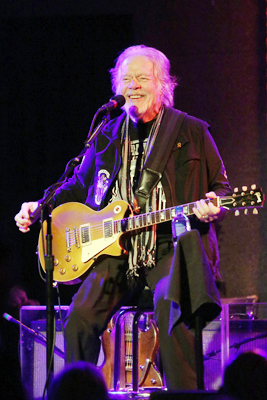 Bachman: BTO evolved out of failure, after failure, after failure, after failure. When I left The Guess Who being the number one band in the world, I tried a country/rock thing. Neil Young had come back to Winnipeg. We hung out together. Buffalo Springfield had broken up. He did a solo album. Stephen Stills had gone to great success with Crosby, Stills & Nash. Neil comes back to Winnipeg to visit his mother. I’m hanging out with him. He tells me to start another band, a country rock band. “Don’t do The Guess Who material cause you’ll never beat Burton Cummings and the guys. Do something different.” I do something different. Neil gets me a deal with Warner Brothers/Reprise. It’s a failure. The next one’s a failure. The third one’s a failure. I get dropped. I keep trying and trying. Finally, I find a label that says, “change the name. Put ‘Bachman’ in the name.” It was me, and my brothers, and Fred Turner. We called ourselves Bachman-Turner. We find a magazine called “Overdrive,” a trucker’s magazine, call ourselves BTO. We keep trying the music and I go from light country, like CSN and Poco, to heavy country, to heavy pop, to writing pop music like I did in The Guess Who, but bringing in heavy, monster guitars in the choruses. So my verses in the songs are kind of light like pop music, and suddenly, we come crashing in with a chorus, like “You Ain’t Seen Nothing Yet” or “Gimme Your Money Please,” like a whole new heaviness to pop music.
Bachman: BTO evolved out of failure, after failure, after failure, after failure. When I left The Guess Who being the number one band in the world, I tried a country/rock thing. Neil Young had come back to Winnipeg. We hung out together. Buffalo Springfield had broken up. He did a solo album. Stephen Stills had gone to great success with Crosby, Stills & Nash. Neil comes back to Winnipeg to visit his mother. I’m hanging out with him. He tells me to start another band, a country rock band. “Don’t do The Guess Who material cause you’ll never beat Burton Cummings and the guys. Do something different.” I do something different. Neil gets me a deal with Warner Brothers/Reprise. It’s a failure. The next one’s a failure. The third one’s a failure. I get dropped. I keep trying and trying. Finally, I find a label that says, “change the name. Put ‘Bachman’ in the name.” It was me, and my brothers, and Fred Turner. We called ourselves Bachman-Turner. We find a magazine called “Overdrive,” a trucker’s magazine, call ourselves BTO. We keep trying the music and I go from light country, like CSN and Poco, to heavy country, to heavy pop, to writing pop music like I did in The Guess Who, but bringing in heavy, monster guitars in the choruses. So my verses in the songs are kind of light like pop music, and suddenly, we come crashing in with a chorus, like “You Ain’t Seen Nothing Yet” or “Gimme Your Money Please,” like a whole new heaviness to pop music.
They start to call it “heavy rock” or now it’s called “classic rock,” and at the same time, everybody’s doing it: the Stones, Credence Clearwater [Revival], The Who. Then FM radio starts and starts playing way more album cuts, and you can be more of a band than just having a hit single. Maybe they will play two or three album cuts that are longer, four or five minutes long, that show you can play your instrument really well. Everybody in the band can play and sing more than a two-and-half, three-minute song. So music’s just evolved. I go along with the evolution of it and it’s been an incredible ride. I would say about ‘66 to ‘76 or ’77, and then to repeat that every decade with everything coming out again in CD, and then CDs being gone and everything coming out again in vinyl, and not being able to do concerts for three years because of COVID, and everything being shut down, and coming out to do concert after concert again. It’s like a real revival of life, and music, and rock and roll.
Is there anything in particular that motivates you to keep going after so long?
Bachman: I’m lucky that if I start one of maybe 20 songs, to see the light in people’s minds, and their faces, and their hearts, and souls in the audience just kaching-ing on that song, and suddenly, they bounce back to when they first heard it in the tractor on the farm, or in the pickup truck, or hunting, or at the beach with somebody, or a party. They flash back to that, and all the memories come back, and it’s just an incredible thing to look out there and see a 10 or 12-year-old kid singing to your song, and he’s with his father, who’s in his 40s, and he’s with his grandfather in his 80s. They’re all singing the song. It’s just quite an amazing thing, which didn’t happen to the previous music. Like I remember when I was growing up, my parents in the house would play Frank Sinatra, Tony Bennett, Benny Goodman, Glenn Miller, and then suddenly, boom, it was Elvis [Presley] and everything changed.
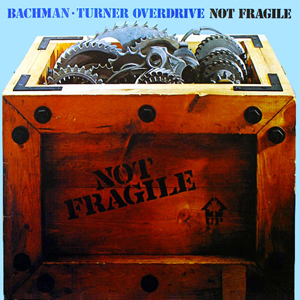 It was rock and roll. Elvis, Chuck Berry, Bo Diddley, Jerry Lee Lewis, and from then on, it was rock and roll. It’s still rock and roll, even though other music has come back. A lot of R&B and country music is big, but rock has stayed on as a really great genre and the classic rock stations. There are guys that are still out there, like Neil, Aerosmith and The Beach Boys. I go to all these guys’ parties cause I know them all. I went to The Beach Boys’ 50th anniversary, went backstage with them, hung out, had dinner, watched the show, danced, cried. I was with a couple of people. We had a great time and it turned into entertainment for the world. When you have that many hit songs, people just go out and have a really good time. We had a lot of bad vibes to forget what happened in the last three or four years.
It was rock and roll. Elvis, Chuck Berry, Bo Diddley, Jerry Lee Lewis, and from then on, it was rock and roll. It’s still rock and roll, even though other music has come back. A lot of R&B and country music is big, but rock has stayed on as a really great genre and the classic rock stations. There are guys that are still out there, like Neil, Aerosmith and The Beach Boys. I go to all these guys’ parties cause I know them all. I went to The Beach Boys’ 50th anniversary, went backstage with them, hung out, had dinner, watched the show, danced, cried. I was with a couple of people. We had a great time and it turned into entertainment for the world. When you have that many hit songs, people just go out and have a really good time. We had a lot of bad vibes to forget what happened in the last three or four years.
When you were writing these songs and experiencing everything as it was initially happening, did you ever foresee it all coming back around again?
Bachman: No, it’s a kind of a surprise for me. I’m surprised to see the world accepting it cause at first, rock and roll was bad. It was banned everywhere. The churches banned it. They melted your records. The Bible Belt went crazy. Now everybody loves it. It’s become the the soundtrack for everybody’s lives, whether you’re ten and you hear “Shakin’ All Over” in a video game, or “Takin’ Care of Business” and you’re 90, and you hear it in an Office Depot commercial, or you see guys singing it in a movie. The music is everywhere. It’s permeated everybody’s life.
I mean, I’m watching the soccer finals now and the rugby finals. It’s amazing to see these people from all over the world, all different colors of skin, all different religions, all together as an audience of 50 or 60 thousand people to see the athletes, singing their heads off, crying [when they play] their national anthem. They’re so proud to be there. Sports brings everybody together and music is the same. It brings everybody together. It’s the way to unite the world, and forget these guys who want to invade each other’s country, and blow each other up. All we want to do is live in peace, make love, be made love to, feed your kids, have a great time, have a barbecue, play some music, rock and roll, and live happily ever after. That’s all we want. We don’t want to defend ourselves or attack anybody, so I wish somebody could get to these world leaders that are playing these games with our lives, and our money, and the whole world. It doesn’t make any sense. What makes sense is staying alive, making great music and having a great time with the ones you love.
Bachman-Turner Overdrive performs at the Genesee Theatre on Friday, October 20. For additional details, visit BTOBand.com and GeneseeTheatre.com.

